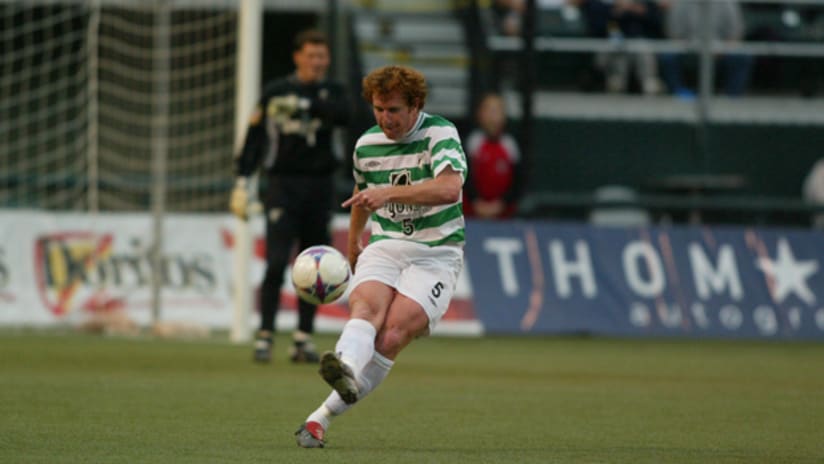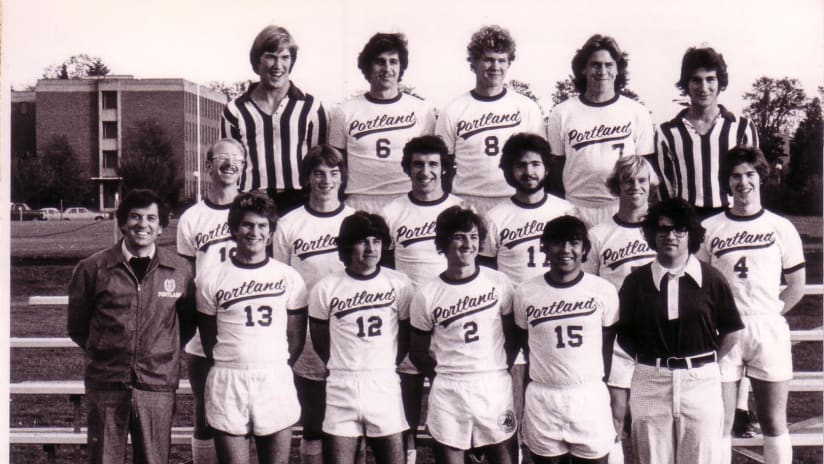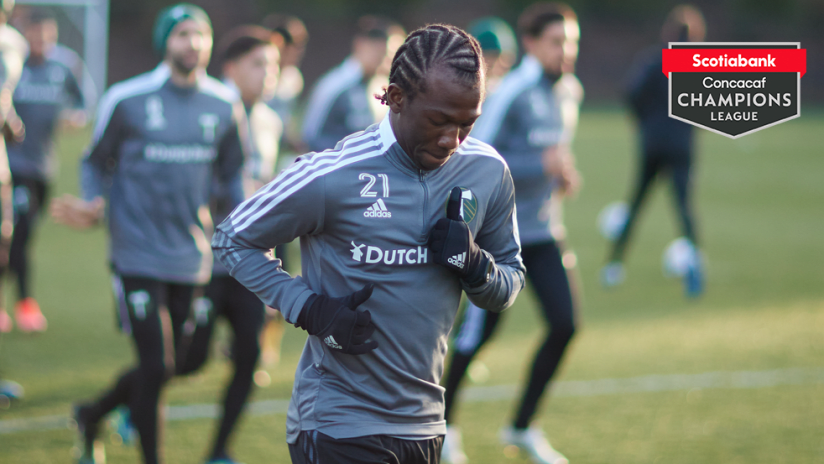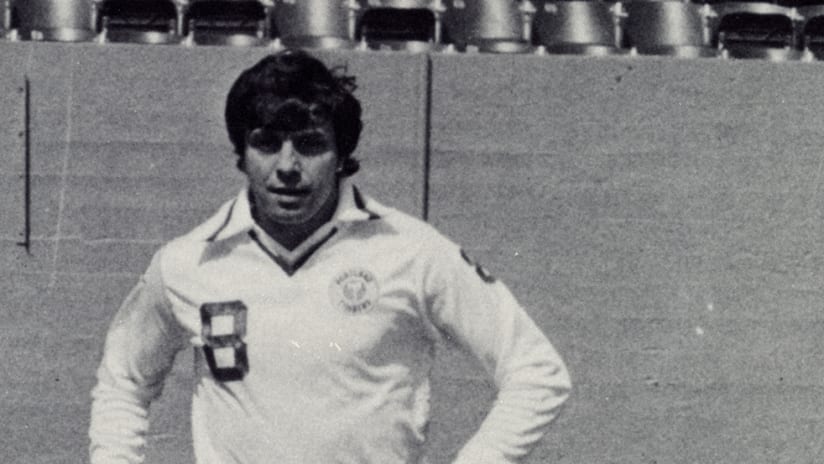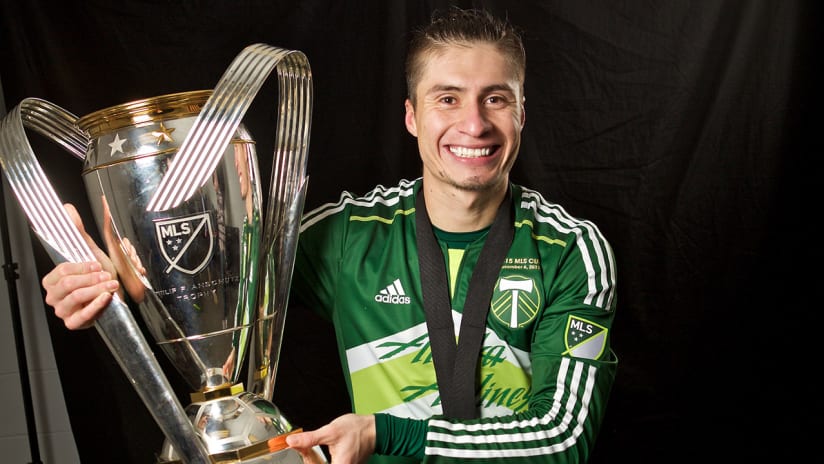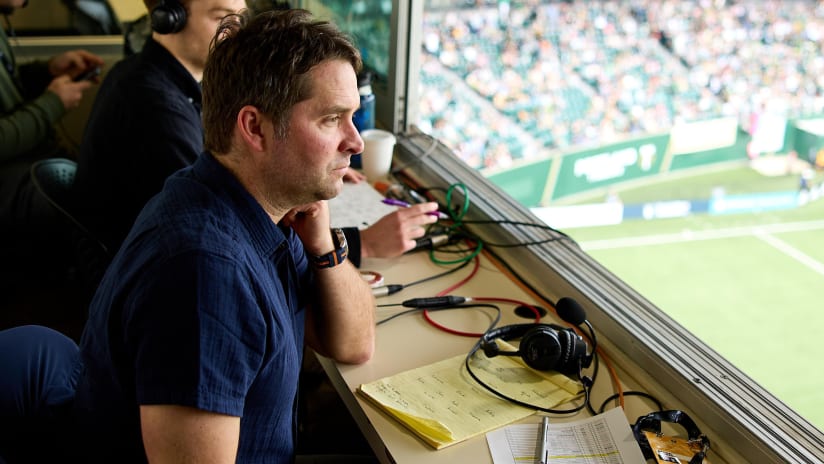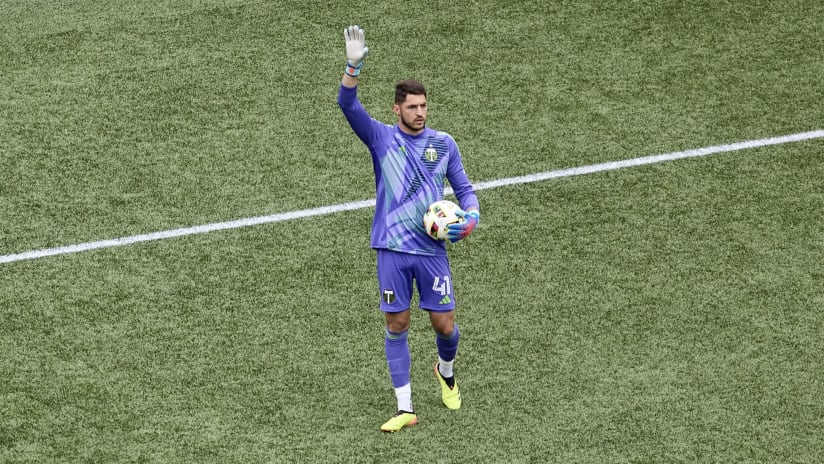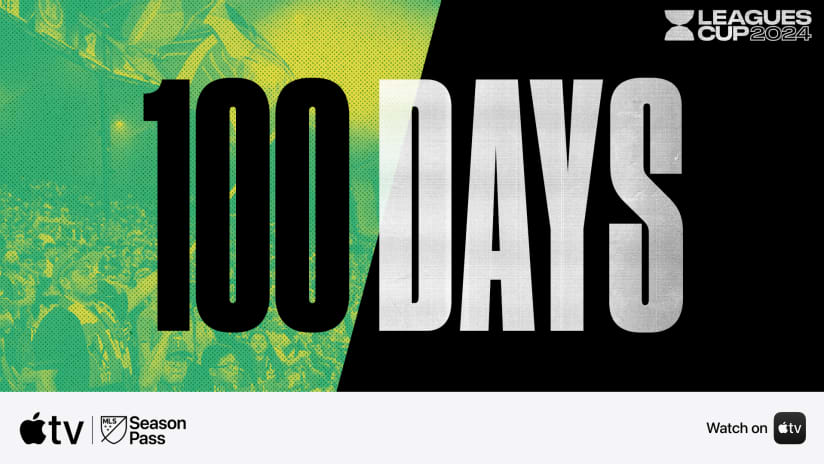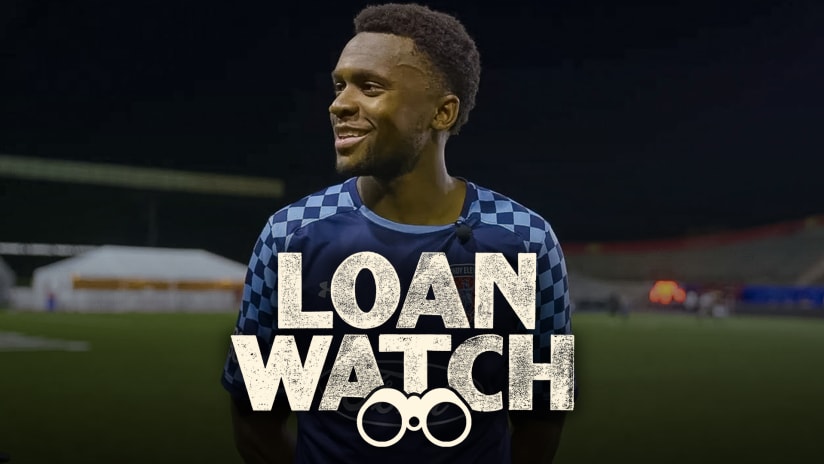Gavin Wilkinson has been with the Portland Timbers since the beginning, and there’s every expectation that he will be a part of their success for years to come.
Recently signed to a three-year contract that will make him the veteran of the franchise, the unassuming New Zealander has been the mainstay for Bobby Howe’s defense. This season his contribution on the field will mean more than ever with a young defensive group and a pair of new goalkeepers.
Off the field, Wilkinson has already made an impact on the growth of soccer in the community. Wilkinson helped form Portland’s Eastside United Soccer Club last year. As its director of coaching, he has grown the club to over 3,000 recreational and competitive players from ages 6-18. According to Timbers’ Grassroots Program director Jamie Watson, other area coaches are looking to Wilkinson’s program as a model of how to run a successful youth club.
BLAKE TIMM: You just signed a three-year contract which means you’ll be with the Timbers for quite some time. What made you decide to stay in Portland?
GAVIN WILKINSON: My wife and I really enjoy the place. This is what we consider our second home now. I’ve got something outside of playing soccer now, which is coaching, and that keeps me involved with the game I love. It’s just a great scenario.
BT: What made you decide to come to Portland in the first place?
GW: At the time I had spoken to a couple of people who had been through Portland, and they thought it was a nice place. The coach that I had in Ireland at the time knew both Bobby Howe and Jimmy Conway and spoke very highly of them. It was a great opportunity. I had opportunities to go to other clubs in different parts of the U.S., but this is the one I chose and it is one I have greatly enjoyed.
BT: Has the experience been everything that you expected?
GW: It’s been fantastic apart from not winning an A-League title. That’s the one thing we want to focus on. The first two years this was a start-up organization. Now that we have stability within the team and within the coaching staff, hopefully this year will be the year.
BT: What could make 2003 the year for the A-League Championship?
GW: I think we have greater balance within the squad. I think the players that Bobby has brought in are very good players. He can play any of those players and expect immediate results from them. Bobby and Jimmy have been around the A-League a little longer now, so they have seen what’s out there and they have seen what we are playing against. Now that we’re no longer a new team, there will be greater expectations. Hopefully the players will pick up on those and we can deliver.
BT: The Timbers were your first experience playing for a United States soccer team. How does the American game differ from the European style that you were more accustomed to?
GW: First is playing as a team and knowing who you are playing with. I think if you look at the U.S. National Team now, they are starting to play as a cohesive unit. Before that, a lot of their game relied on the athleticism of their players. Within the A-League, because the players’ places change so often, no player stays with one team for a long time. You never get to really learn about the way a particular team plays.
With that, the game has been based around the physical attributes of the individual players. There are not a lot of players that settle on the ball and actually look to create and look to keep it. A lot of it is fast-paced, 100-miles-per-hour games, but I think that is slowly starting to change. You’re getting better coaches involved within the league and there are better players coming through.
BT: And more people that know the international game as opposed to those who have just played in the United States?
GW: Definitely. If you ever look at the players that some of the leagues are bringing in, hopefully they will have a positive influence and show and see different ways of how the game can be played.
BT: You are now the director of coaching for the Eastside United Soccer Club and have been a part of the organization since the beginning. How did you become involved with the club?
GW: I spoke to Jamie Watson and we looked at the possibility of staying in Portland instead of going from country to country again. I was looking at going back to Ireland and then returning to the Timbers, but it was time to give my body a bit of a rest. Coaching worked because it is something that I greatly enjoy. I really enjoy coaching kids.
There was an opportunity where three clubs on the eastside merged: the Three Rivers, West Villa and Gresham Youth clubs. I put in a proposal with Jamie’s help, to merge those three clubs, and we were successful. That was over a year ago now and things have been fantastic. We’re still having our teething problems, but we’re a club definitely heading in the right direction.
BT: Do you have an age group you particularly like better than another?
GW: There’s no one group that I focus on. I try to work a lot with the coaches, and with that I try to use groups of kids to demonstrate what I expect of the coaches. That ranges from U-6 all the way to U-18. In the limited time that I have, I try to get around to all of the players in our club. It’s great for them to have our affiliation with the Timbers. We are a Timbers Premier partner, so we get other Timbers players out to coach. We had six players working last year, and that had a positive influence on that community.
BT: I would think the kids respond well to professionals showing them the skills they need to be great players themselves.
GW: I think professional players can demonstrate things well. They may not always be a great coach, but they are very good players, and with kids a picture can paint a thousand words. So if they can see what the coach wants from them and can demonstrate it, which the Timbers players can definitely do, it’s great. If they can go to school the next day and say, “Our coach is a Timbers player,” or “I worked with a Timbers player,” you have a child who has all of his friends interested and his parents, and hopefully they’re coming and watching games.
BT: On the field, your strength is running, aggressive defense. Where do you excel as a coach?
GW: I have a love of the game and I am very enthusiastic when it comes to coaching. My expectations are very high, and they are also that way with the players I work with. I’m a player that has been coached by coaches and the international level and youth level. I’ve been through what these kids are going through now, and I know what it takes from them to become a professional player. Coaching is an ever-going learning curve. I am continually learning from other coaches and other players. That’s my main strength. I continue to seek knowledge and have a love of the game.
BT: What do you think of Portland’s soccer community?
GW: I think it has tremendous potential, and that can be a dangerous word if it never reaches that potential. But just look at Eastside United’s growth. We were non-existent a year ago and now we consist of 3,000 kids. Obviously, fields are holding most clubs back. It would be nice to have greater facilities for sports within Portland and the surrounding areas. Nonetheless, soccer in this community is fantastic and it is continuing to grow. We’re continuing to get better coaches into the local clubs, and it’s great for the game.
BT: The Timbers of the past have been so instrumental in building the Portland soccer community into what it is today at every level. What does it mean to you to be part of that tradition of community involvement?
GW: It means a great deal. First of all, just look at what Jimmy Conway has done for the youth of the area. Another gentleman I have a lot of respect for is Clive Charles. He is someone that has done everything right in the game. It’s obvious from the way he teaches the game and the way the kids are instructed about the game. What Clive has done with F.C. Portland – with the instruction and the coaches he has – he seems to have done everything right. I would like to say in five years that eastside United is the best club in the area and that we are following the kind of system Clive has introduced at F.C. Portland.
Look also at the other youth coaches within the area. You have Bernie Fagan, Tony Betz and Clive Charles to name just a couple. All of the Timbers players that have stayed around have had a positive influence on the game. I don’t think any of them have had a negative influence, and it would be nice to keep that going.
BT: Do you still desire to play internationally again?
GW: I had two international games at the end of last year against Poland and Estonia, both of which I thoroughly enjoyed. With the way the A-League season overlaps, though, I may turn down the opportunity to go back to New Zealand and play with the national team. I would have to miss 6-8 Timbers games. Obviously I wouldn’t be an international layer if it weren’t for the club, so there’s some level of commitment. They are selecting a side very soon to go to the Confederation Cup against France, Japan and Colombia. To be included in that level of competition would be something phenomenal.
BT: Do you run into many other Kiwis and Aussies in soccer circles, or are you a pretty select group?
GW: There’s a lot of Australians overseas now. I think there are well over 150 Australians playing in foreign leagues. As far as New Zealanders, I think there are three of us playing in the MLS. New Zealand is not that large of a country and soccer is not their No. 1 sport, so if someone does want to excel at soccer, they have to leave the country.
BT: What do you do when you need to get away from the game?
GW: We’ve been up to Mt. Bachelor a few times. We like to get away to places like that when we have an opportunity. There’s some places like that in and around Portland that we want to explore. We just bought a house, so I expect we’ll be working on that a little bit. We like to relax together, maybe go to the movies or just chill. We try to get away from everything every now and then.
BT: What would you like to tell fans about coming out and supporting the Timbers?
GW: I think the soccer community in Portland is strong; one way for it to get stronger is to come out to the games. There are a lot of soccer players. It’s the fastest growing sport in the state. I think they can get a greater appreciation of how the game can be played. There’s no better reason to turn out for Timbers games. It’s a great facility and a great team. The best way to learn the game is to watch it being played at the highest level, and that is the Timbers.

